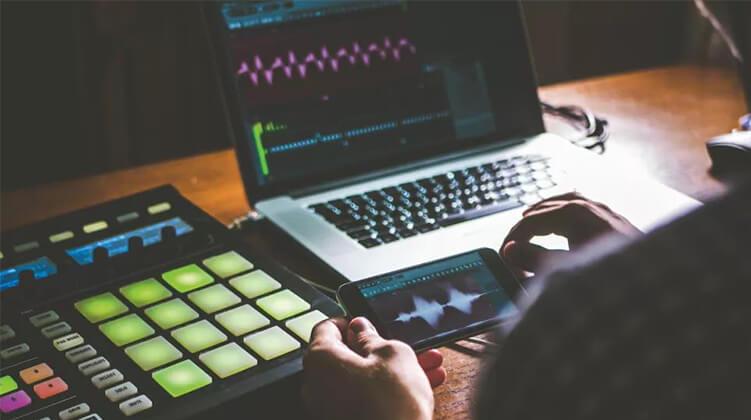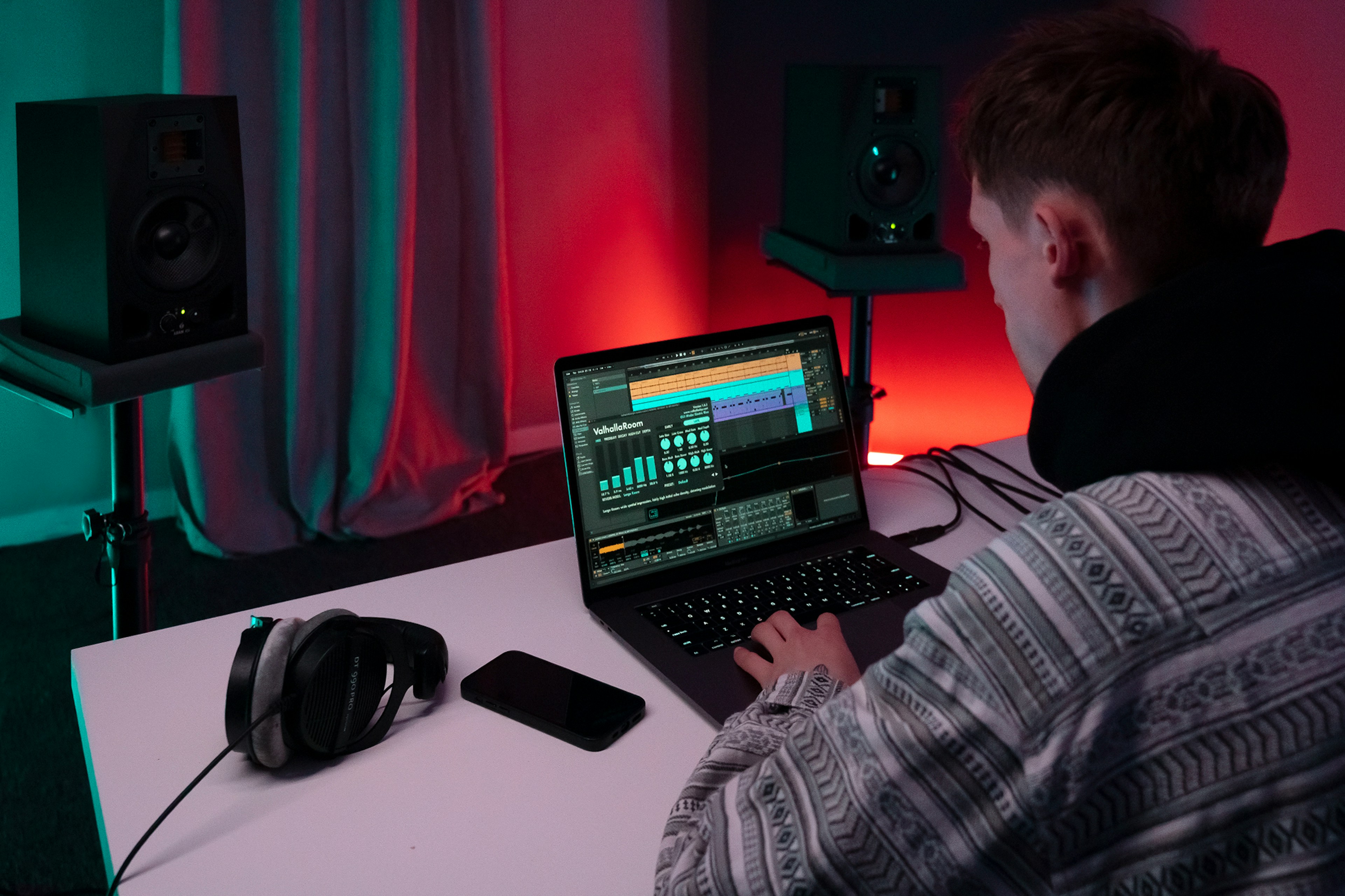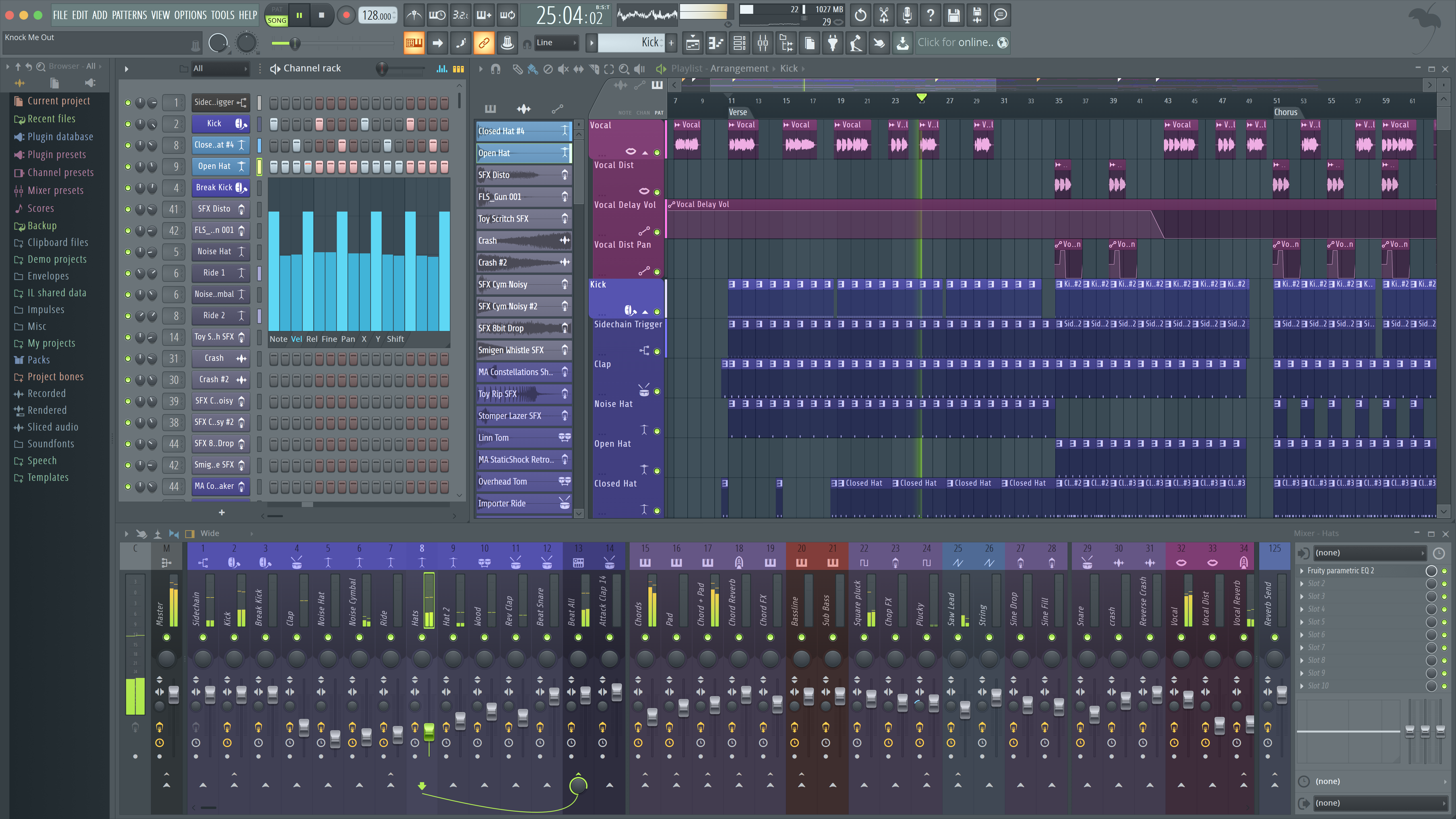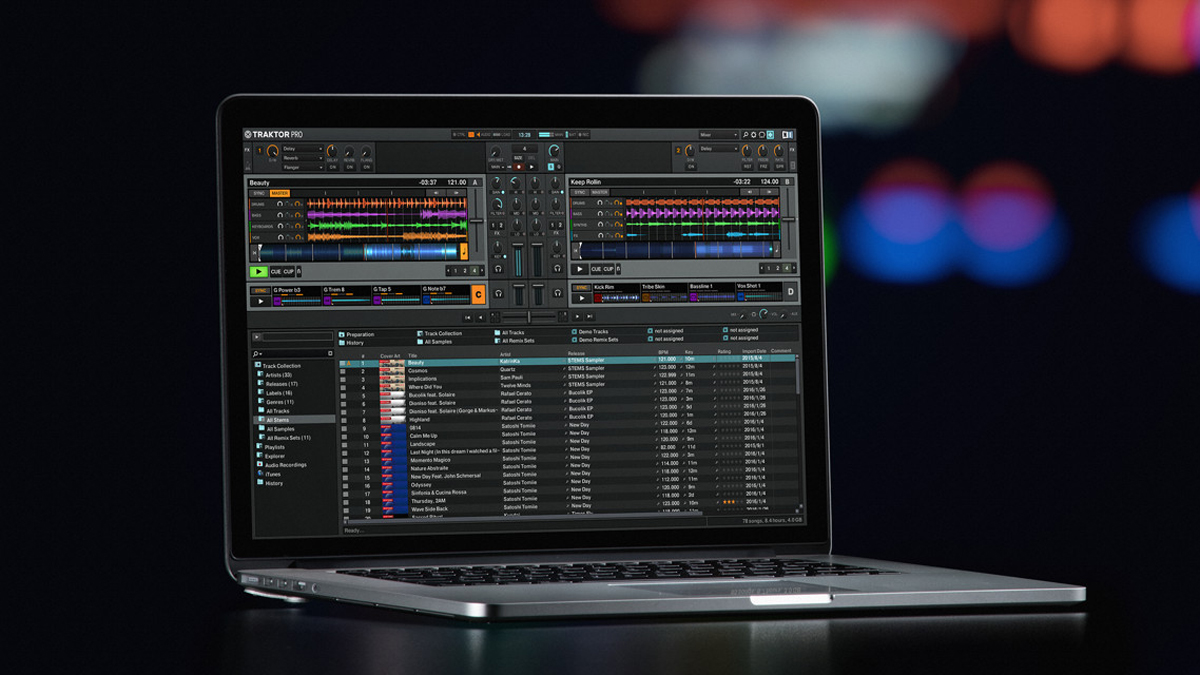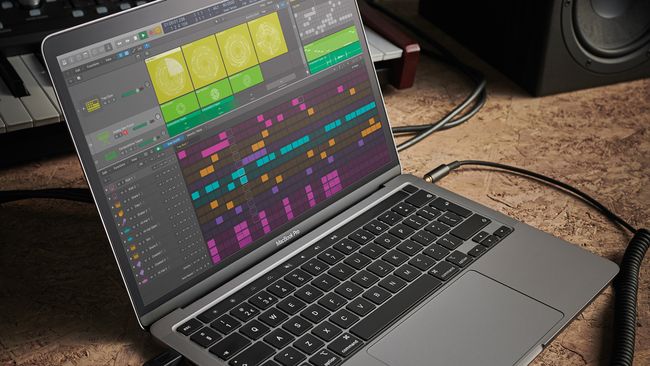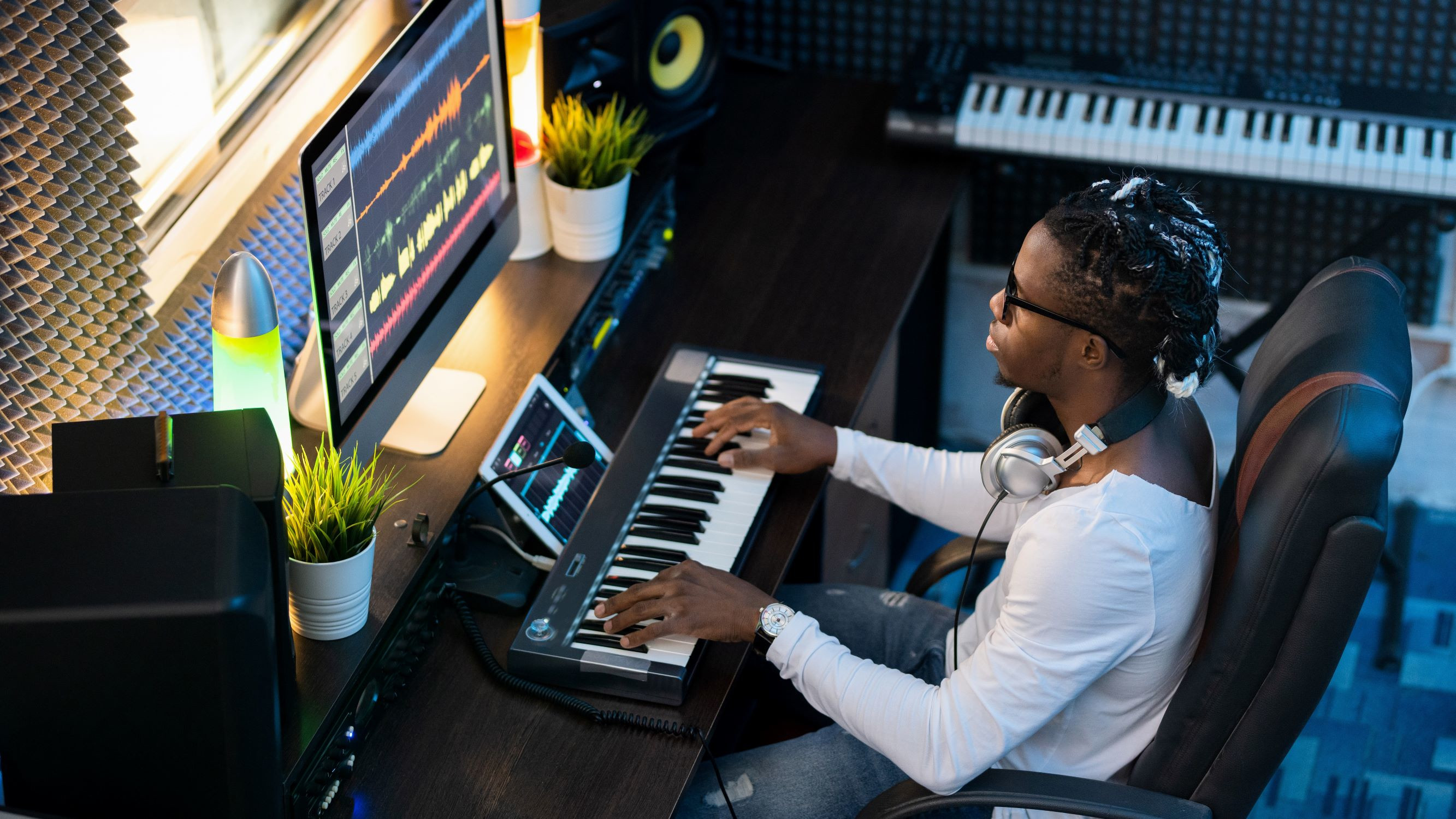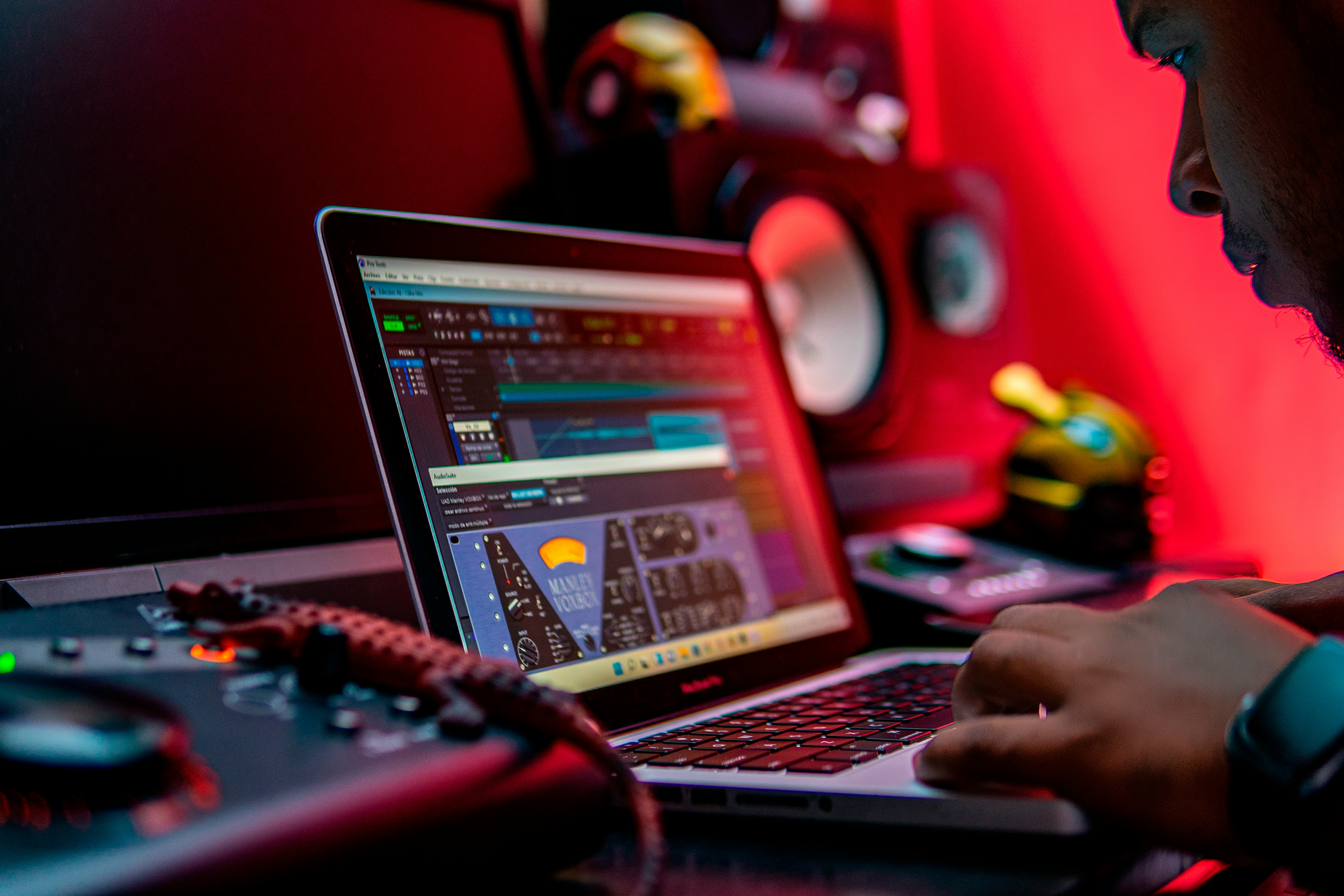How To Make Music On Laptop

Alright, budget-conscious beatmakers and aspiring artists! You're itching to create music, but the thought of dropping serious cash on a fancy studio setup makes your wallet weep. Fear not! We're diving deep into the world of laptop music production without breaking the bank. This guide is for the penny-pinchers, the DIY enthusiasts, and anyone who believes great music doesn't require a platinum credit card.
Why does this matter? Because music creation should be accessible. Gone are the days of needing a dedicated studio. With a laptop and the right (affordable) tools, you can unleash your creativity from anywhere.
The Frugal Musician's Toolkit: Software
The Digital Audio Workstation (DAW) is your command center. It's where you record, edit, mix, and master your tracks. Luckily, there are fantastic free and low-cost options.
Free DAWs That Pack a Punch
Audacity: This open-source software is a classic for a reason. It's simple, powerful, and perfect for recording vocals and instruments. It is suitable for basic recording and editing. GarageBand (macOS): If you're on a Mac, you already have a solid DAW. GarageBand is surprisingly capable. It includes a wide range of virtual instruments and loops.
Budget-Friendly DAWs Worth Considering
Reaper: A powerhouse DAW with a ridiculously generous trial period. Even after the trial, it's incredibly affordable for a personal license. It is very customizable and is suitable for advanced users. FL Studio Fruity Edition: Perfect for electronic music producers. The Fruity Edition is the most affordable version and provides all the core functionality for creating killer tracks.
Essential Free Plugins: Sound Sculpting Without Spending
Plugins add effects and instruments to your DAW. Many free plugins can drastically improve your sound without costing a cent.
Vital: A superb free wavetable synthesizer. It's comparable to Serum, a widely-used paid synth, and offers incredible sound design capabilities. It provides lots of customization.
MeldaProduction MFreeFXBundle: A collection of 37 audio effects that covers everything from EQ and compression to delay and reverb. Essential for shaping your sounds. It is suitable for every level of music production.
LABS by Spitfire Audio: Beautiful and inspiring virtual instruments, ranging from strings and pianos to experimental textures. It will enhance your track without spending anything.
Hardware on a Shoestring: Essential Gear
You don't need a top-of-the-line interface or a massive microphone collection. Here's what you *actually* need to get started.
USB Microphone: A decent USB microphone is essential for recording vocals or acoustic instruments. Look for models from Blue Yeti or Audio-Technica AT2020, especially used.
Headphones: Closed-back headphones are crucial for monitoring your audio without creating feedback. Audio-Technica ATH-M20x or Sony MDR-7506 offer great value.
MIDI Keyboard (Optional): If you're into electronic music, a MIDI keyboard will unlock a world of possibilities. Look for a small, portable keyboard like the Akai MPK Mini, available used.
Product Showdown: Specs and Scores
| Product | Price | Ease of Use | Features | Sound Quality |
|---|---|---|---|---|
| Audacity | Free | 8/10 | 6/10 | 7/10 |
| GarageBand | Free (macOS) | 9/10 | 7/10 | 8/10 |
| Reaper | $60 (Personal License) | 7/10 | 9/10 | 9/10 |
| FL Studio Fruity Edition | $99 | 8/10 | 8/10 | 8/10 |
| Blue Yeti | $129 | 9/10 | 8/10 | 8/10 |
| Audio-Technica ATH-M20x | $49 | 10/10 | 7/10 | 8/10 |
What Do Other Cost-Cutters Say?
Customer satisfaction is key. We scoured forums and reviews to see what real users think about these budget-friendly options.
"I've been using Audacity for years, and it's perfect for recording my guitar practice. It's simple and gets the job done." - GuitarGuy87
"Reaper is a steal for the price. It's powerful enough for professional use, but the personal license is so affordable." - BeatMaster2000
"The ATH-M20x headphones are surprisingly good for the price. They're comfortable and sound great for mixing." - AudioNoob
Maintenance: Keeping Your Budget Setup Humming
Maintenance costs for a budget setup are minimal. Software updates are often free, and hardware care is simple.
Keep your software updated to ensure compatibility and security. Dust your microphone and headphones regularly to prevent damage.
Consider investing in a cheap pop filter for your microphone to improve vocal recordings. Back up your projects regularly to avoid data loss.
Key Takeaways: Maximize Your Music-Making Money
Creating music on a laptop doesn't require a fortune. Free DAWs like Audacity and GarageBand are excellent starting points. Budget-friendly options like Reaper and FL Studio offer more features at a reasonable price.
A decent USB microphone and headphones are essential for recording and monitoring. Explore free plugins to expand your sonic palette without spending a dime.
Consider customer reviews and maintenance costs when making your decisions. This will ensure a satisfying and sustainable music-making experience.
Ready to Rock? Take Action!
Now that you're armed with the knowledge, it's time to start creating! Download a free DAW, grab a cheap microphone, and unleash your inner musician. Don't let budget constraints hold you back. The world needs your music!
Browse online marketplaces for used equipment. Join online music production communities for tips and support. Start small, experiment, and have fun!
Frequently Asked Questions (FAQ)
Q: Can I make professional-sounding music with free software?
A: Absolutely! Skill and creativity are more important than expensive gear. Many hit songs have been made with surprisingly simple setups.
Q: Do I need a powerful laptop for music production?
A: Not necessarily. While a powerful laptop helps, you can optimize your workflow by freezing tracks and using lower buffer settings. Start with what you have and upgrade as needed.
Q: Where can I find free samples and loops?
A: There are many websites offering free samples and loops, such as Looperman and Freesound. Be sure to check the license before using them in your projects.
Q: What's the best way to learn music production?
A: Online tutorials, YouTube channels, and online courses are great resources. Practice regularly and don't be afraid to experiment!



